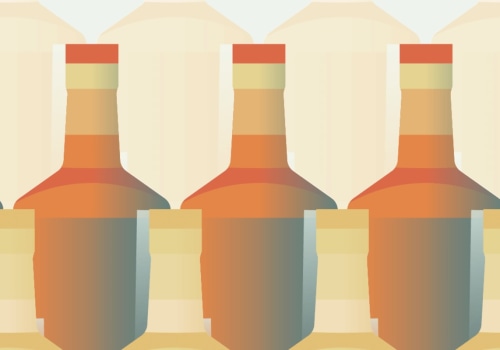Drinking wine every night can lead to weight gain, decreased immune function and mental health problems. In addition, drinking more than a few drinks a day can affect liver health and cause liver damage or liver disease. When it comes to wine consumption and the risk of cancer, there is good news and bad news. The good news is that moderate wine consumption may have a protective effect against esophageal and gastric cancers.
Another recent study found that moderate wine consumption could reduce kidney cancer and thyroid lymphomas. However, the same study also found that moderate alcohol consumption could increase the risk of pancreatic, prostate, liver and breast cancer. Other studies have found that even drinking as little as one drink a day can increase levels of estrogen, which is a known risk factor for breast cancer. Drinking red wine offers health benefits when consumed in moderation, but has many drawbacks when consumed in excess or combined with medications.
Any type of red wine can be enjoyed regularly with meals, snacks, or just in the evenings if done in a responsible manner. Wine can be relaxing and have potential health benefits if taken in moderation. The recommendation for maintaining safe levels of alcohol consumption is one glass of wine a day for women and two glasses a day for men. The decision to drink wine or any type of alcohol is a personal choice and will depend on your general health condition, any underlying medical condition or medications you may be taking, and your ability to limit your consumption to a single drink.
Of course, wine is an alcoholic beverage and carries the same risks and possibilities of addiction as any beer or liquor. Whether it's wine, beer, or whatever cocktail you choose, drinking can contribute to some health benefits as long as it's done in moderation. Alcohol of many types, including wine, has been part of people's nighttime routines for centuries and it doesn't look like it's going away anytime soon. Don't forget that wine is still alcohol and probably more so compared to other alcoholic beverages worth drinking.
The National Institute on Alcohol Abuse and Alcoholism (NIAAA) defines a glass of wine as five ounces, and there are about five glasses in a standard wine bottle. This does not necessarily mean that the number of glasses of wine you drink directly translates into additional days, weeks, months or years of life, but that, due to a combination of factors, it could have positive effects on genes and offer some level of protection against poor health outcomes. Wine contains more calories per ounce than beer or liquor, which equates to about 120 calories per five-ounce glass. In recent years, researchers have examined the health benefits of wine, and some suggest that drinking a little every day may be good for people.
Wine is rich in antioxidants, which can help protect the lining of the body's blood vessels and heart. It seems that drinking red wine is recognized as an acceptable or perhaps even refined way of enjoying alcohol, which may have health benefits. The popularity and cultural acceptance of drinking wine every day has made it more common for people to serve one or two glasses every night. Another review of studies found that moderate wine consumption (one glass a day for women and two glasses a day for men) was associated with a 32% lower risk of depression.
Wine, particularly red wine, can prolong shelf life and reduce the risk or help prevent the onset of chronic diseases, such as depression and metabolic syndrome, if consumed in moderation. However, it's crucial to remember that consuming more or less one glass of alcohol, especially wine, a day would likely reverse these benefits and instead increase the risk of heart disease. .








Leave a Comment